How Conner & Palmiotti push boundaries of Harley Quinn in Black Label series - and what DC says is too far
Along with some of the notes they received back from DC
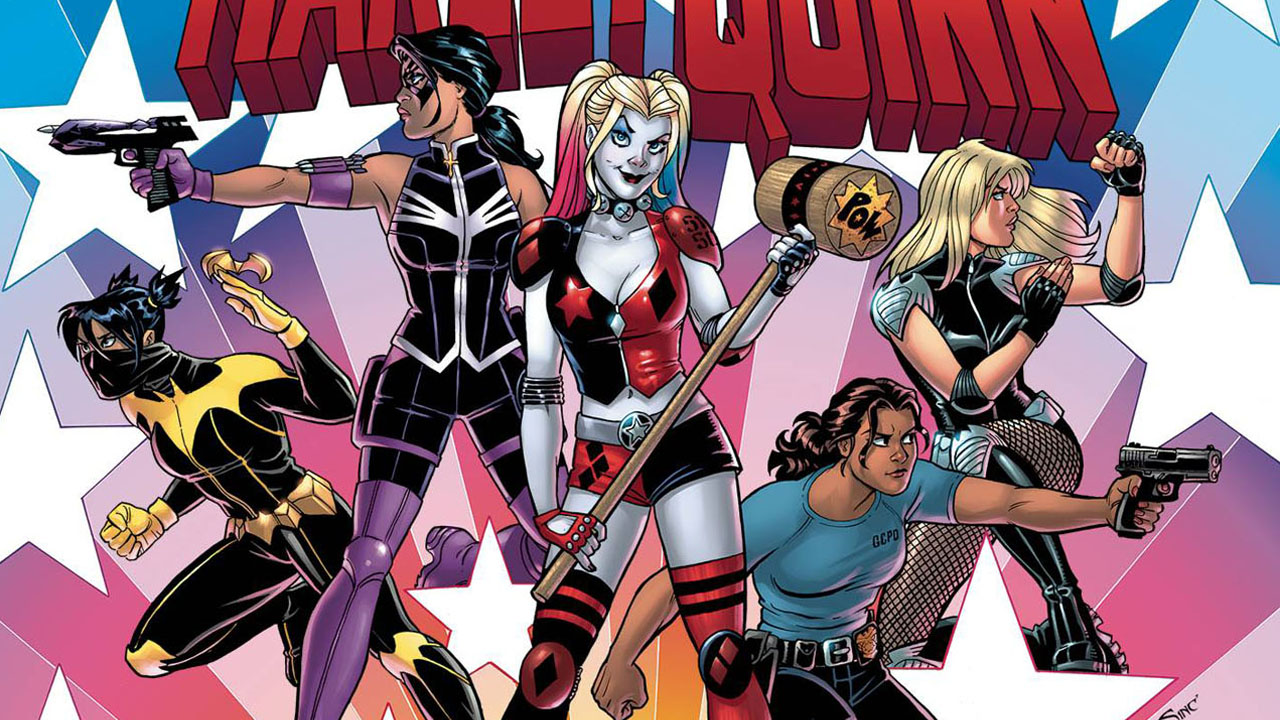
After a hiatus due to the COVID-19 pandemic, the prestige format Harley Quinn and the Birds of Prey title is back at DC with the third issue due on shelves (and digitally) August 14.
Writer/artist Amanda Conner and co-writer Jimmy Palmiotti aren't strangers to one Harleen Quinzel, after an acclaimed seven-year run on her flagship title that resulted in multiple spin-offs and directly inspired the recent DC Universe animated series and bits of the recent Birds of Prey (and the Fantabulous Emancipation of One Harley Quinn) film.
With this four-issue Black Label title Harley Quinn and the Birds of Prey, the duo is pushing her into adult-territory and continuing their Harley Quinn run as if they never left after 2018's Harley Quinn #34. In this limited series, it's HQ (and the Birds of Prey, if you couldn't guess) against almost every villain ever in Gotham City lore.
We caught up with Conner and Palmiotti about the series, ahead of its return on August 14 and the collected edition on December 15.
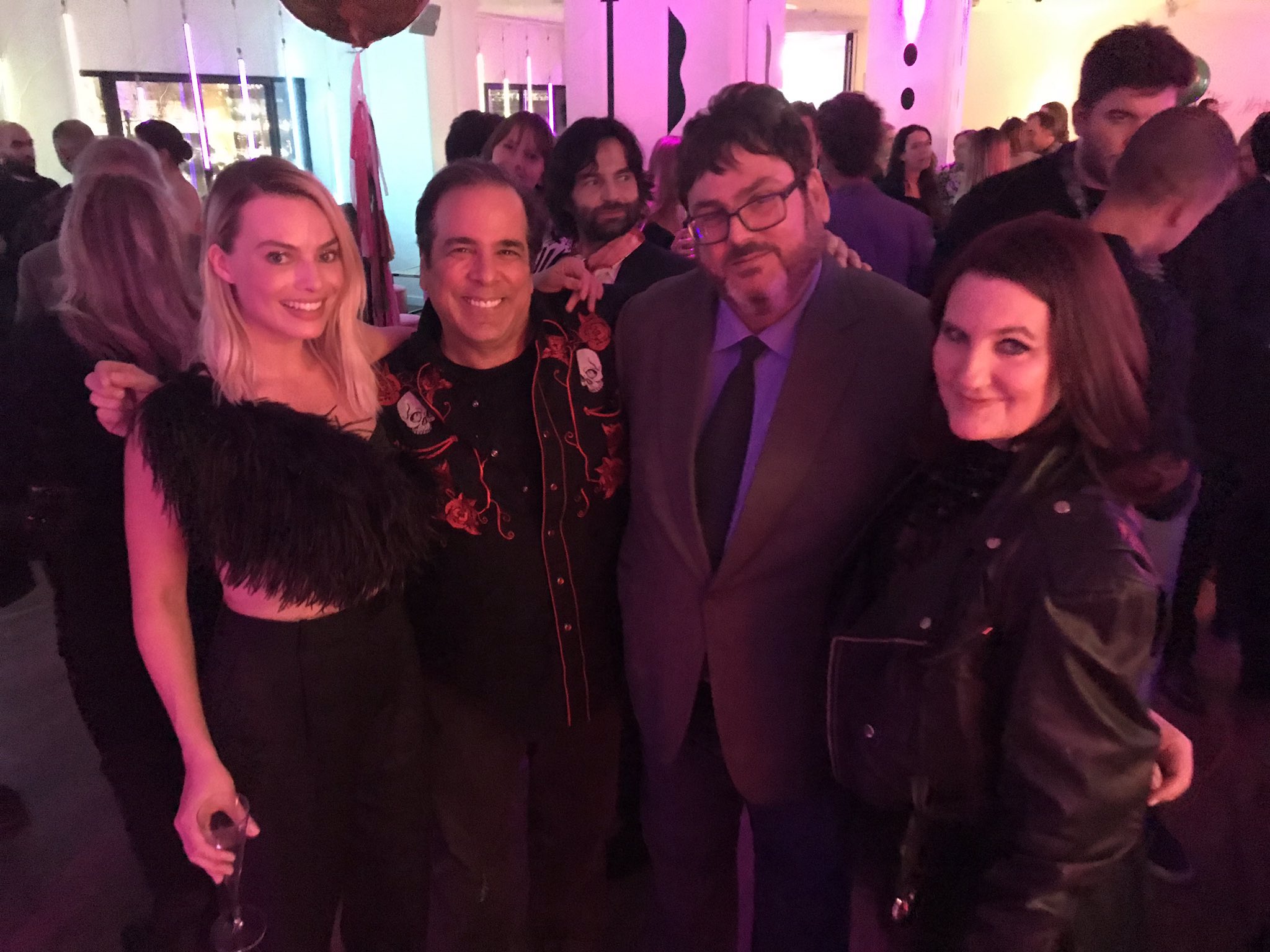
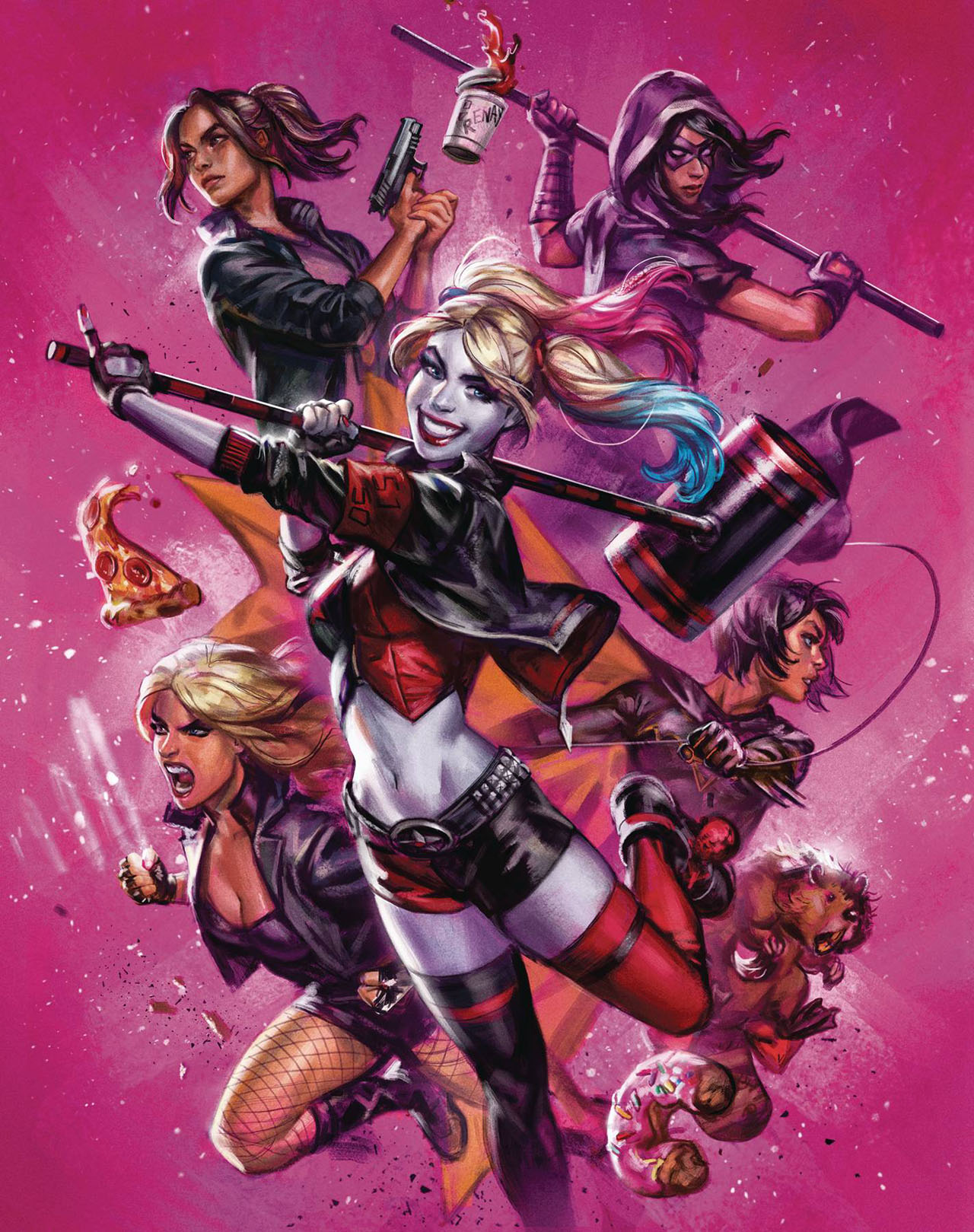
Newsarama: Amanda, Jimmy, it's been a while since this book has been on shelves, so can you catch readers up to speed?
Amanda Conner: Harley Quinn and the Birds of Prey picks up about 6-8 hours after our original run. If readers want a little bit more backstory, they can pick up those---
Jimmy Palmiotti: What, three omnibuses? 2400 pages?
Comic deals, prizes and latest news
Get the best comic news, insights, opinions, analysis and more!
Conner: [Laughs] We paint the picture in this book as she's already met the Birds of Prey and she knows them.
Palmiotti: It's a four-issue Black Label series. These are 32-page stories about Harley going back to Gotham...She has an issue with a real estate company that burned down one of her buildings that she owns. She has a little separation anxiety from Poison Ivy. She still has the Joker on her radar...to kick his ass.
And while she's in Gotham, she meets up with the Birds of Prey and Montoya wants her to leave Gotham. She's like, "Don't make my life insane anymore." And of course the opposite happens. Everything goes crazy in Gotham. Let's just say we're gonna see every Batman villain in this book. It gets a little nutty.
Conner: I don't think we'll see every single one. He's got like 800. [laughs]
Palmiotti: Okay, the main half-dozen. [laughs]
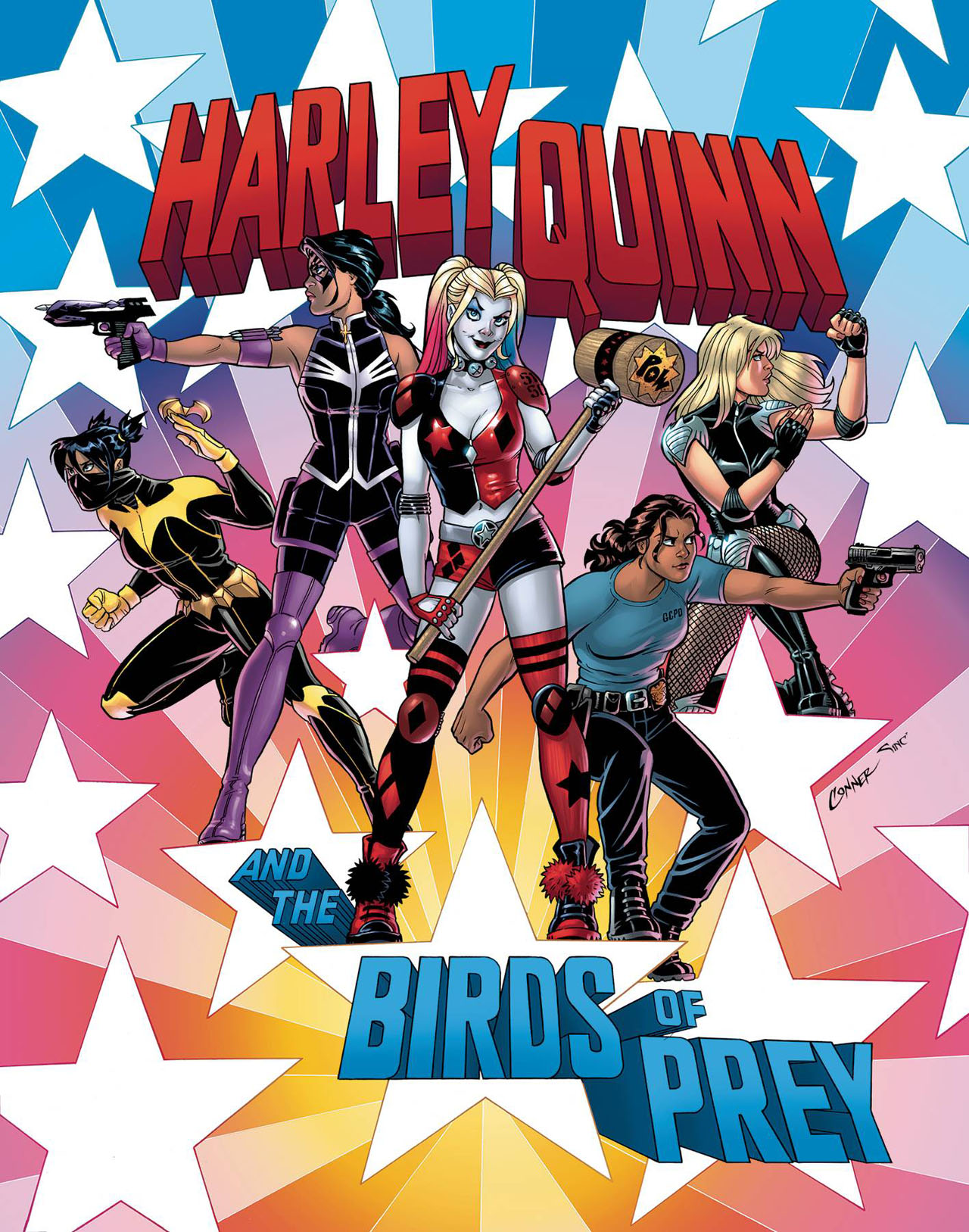
Conner: I don't want to draw every single Batman villain. But we should hire Sergio Aragones for our dream sequence! Oh my God, I'm so disappointed we didn't think of that earlier!
Palmiotti: So is Sergio. But yeah, so it's basically...if you saw the movie and never read the comics, get the book. If you read the comics but haven't seen the movie, you should see the movie. But we wrote the story so it's approachable to everyone. So you don't have to know a lot.
Newsarama: So it's accessible.
Palmiotti: Yes, exactly.
Nrama: You two have incorporated dream sequences into this limited series, and it is her working out (or trying to) Harley's issues.
Palmiotti: We try to keep her very grounded. We added the dream sequences because they usually are a reflection of something frustrating her, something happening in her life. So when you see the dream sequences in the books, it's usually because something's heavy on her mind. And it comes out in a dream sequence.
There's something very telling in each dream sequence because it means something to the story. On the surface, I think the readers read them and laugh and say, "Oh, that's fun!" But it actually ties in. But we really do try to keep her grounded. She does get hurt and things do happen in it.
We don't want to have them too close to each other because then people feel, when they read it, like, oh, it doesn't matter, because it can be rebooted. Comic people are very particular about having their stories mean something.

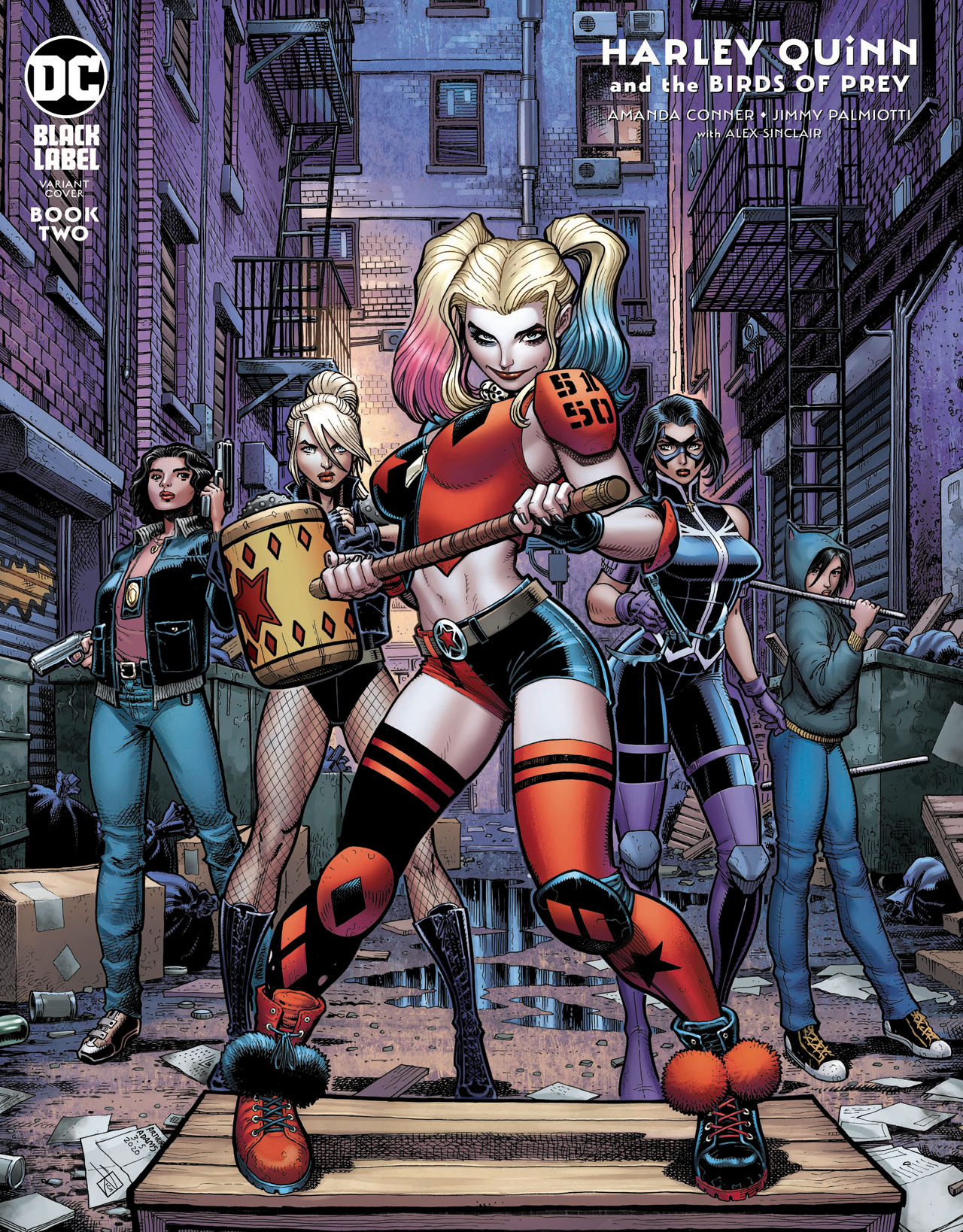
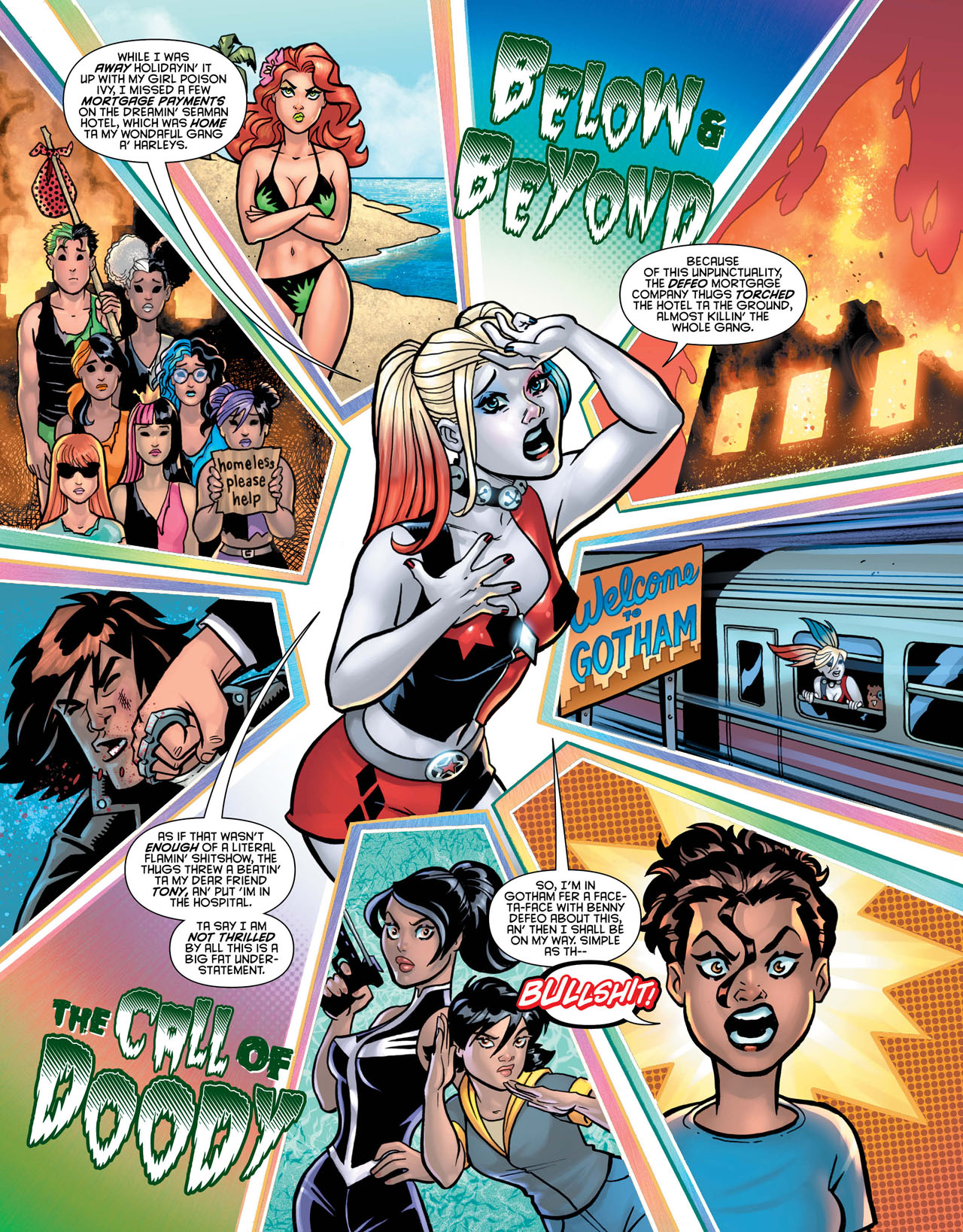
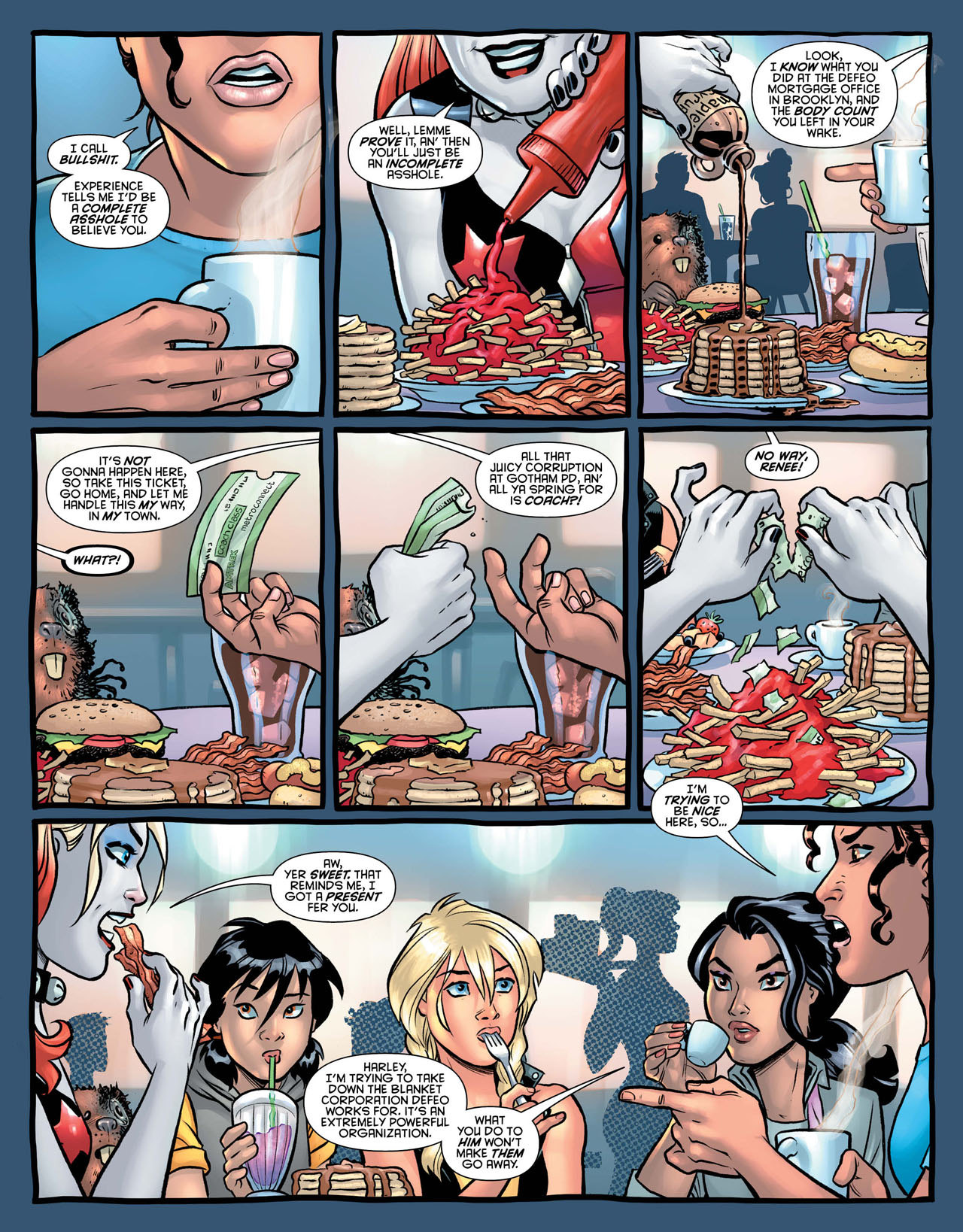
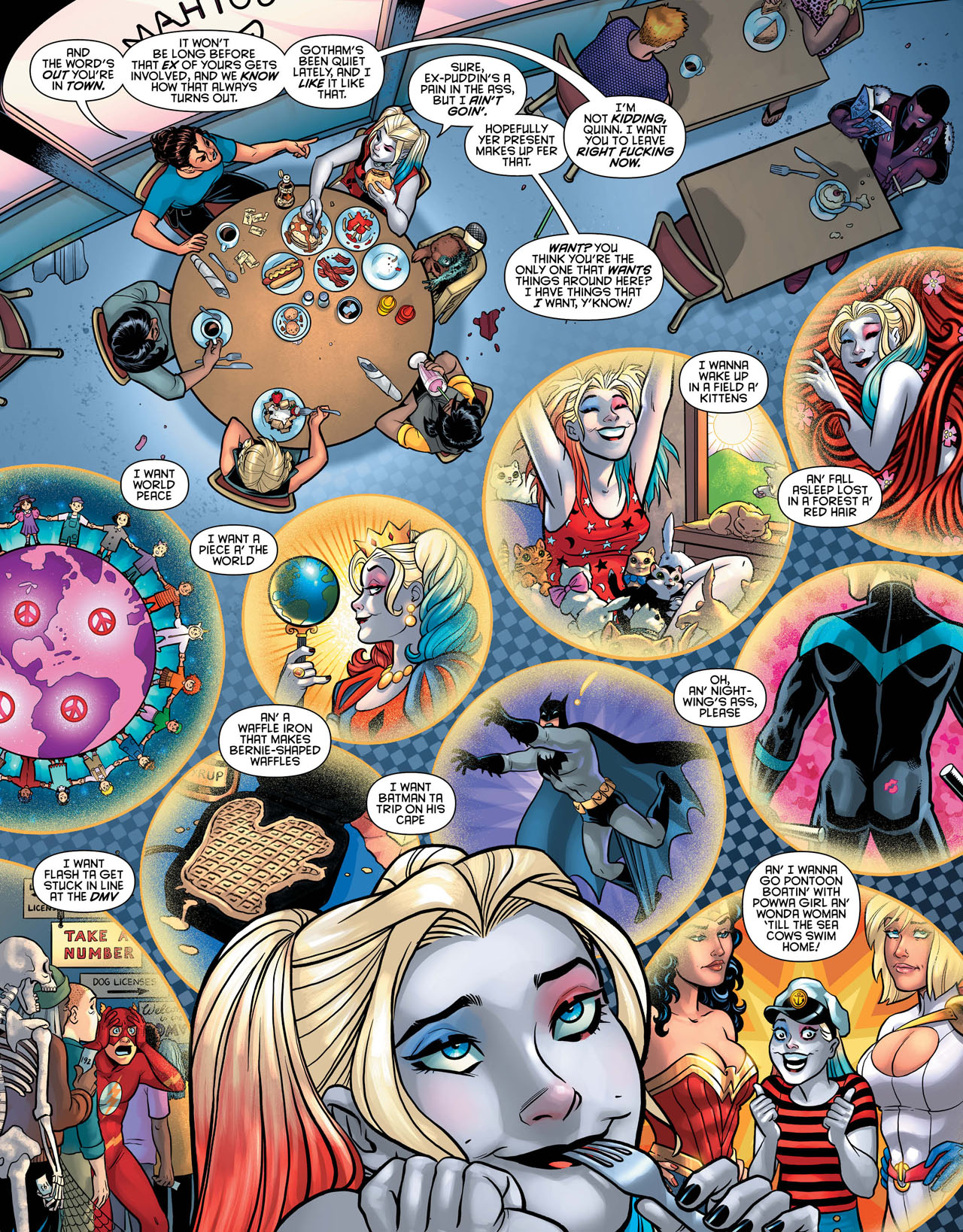
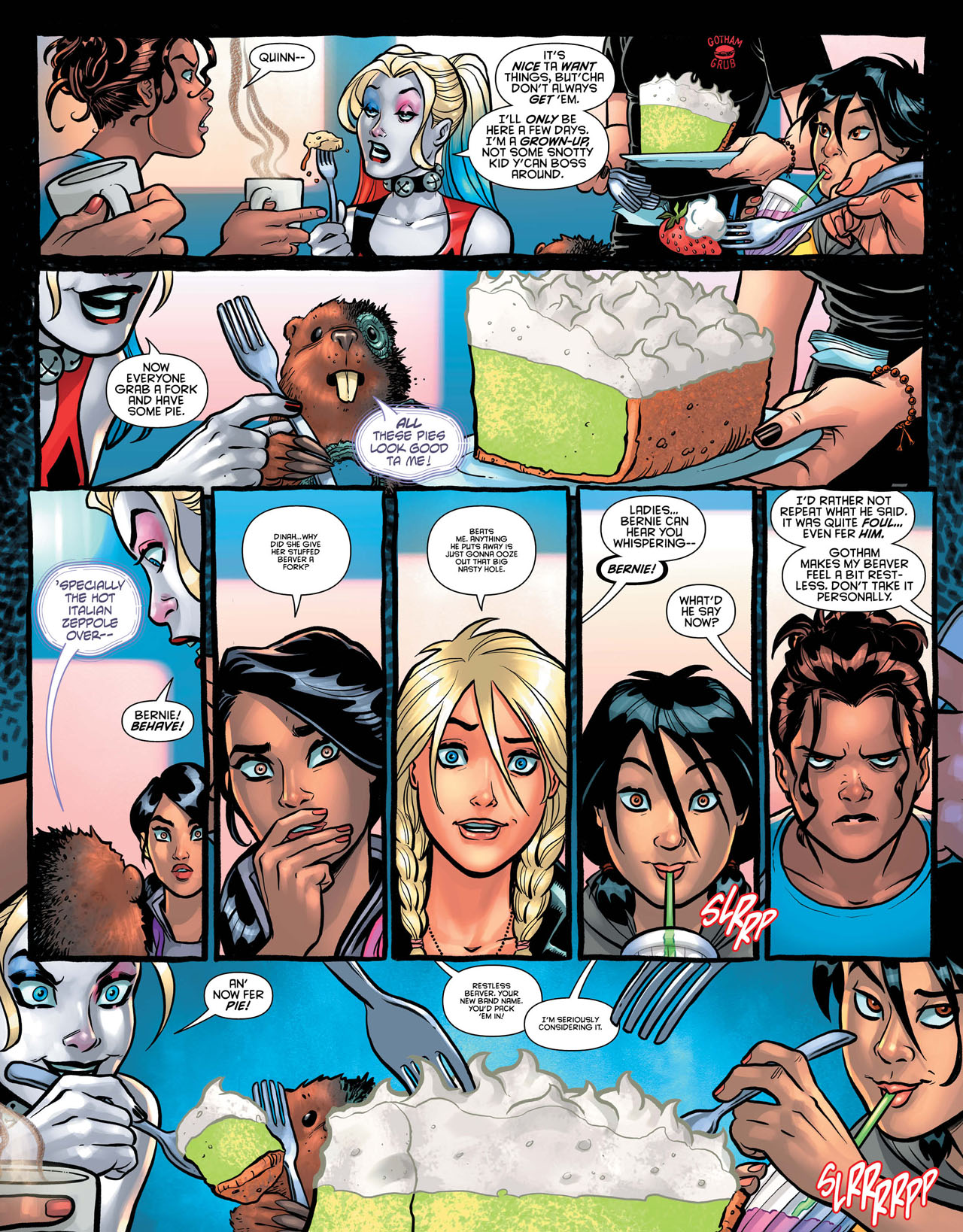
Nrama: Has there ever been a moment where you've thought that Harley was the most sane person in the room?
Palmiotti: In my house, sure. But there's only me, Amanda, and the cat. What do you think of that question?
Conner: Every once in a while, she is. She can instantly recall all of her psychology, her psychiatry training when she needs to. She can level out. Her preferred thing is to just let go and have all the fun in the world and do whatever she wants to do, wherever she wants to go. But every once in a while, if she needs to, she can just lock it up figure stuff out.
Palmiotti: And actually give advice, too. When she sees somebody dealing with something, she'll slow things down for them and say, "Look, the reason you're doing this is 'cause in your past this happened and that's why you're reacting like this." The doctor kicks in. But also, the doctor chooses to let go. If you want to look at it that way, she chooses to have fun not worry about it. But she's completely conscious of what she's doing.
Conner: It's like an overworked doctor choosing to go to Mardi Gras but every day is like Mardi Gras for her. [Laughs]
Nrama: That's probably the best explanation of Harley I've ever heard! So would you say that Harley's nuttier inclinations are more nature or nurture? Did the Joker awaken something that was always there or do you think he completely turned her?
Conner: Oh, I think he awakened something that was always there.
Palmiotti: The Joker's a bad guy, and he can pinpoint trauma and use it against somebody.
Nrama: Oh yeah, he's incredibly smart.
Palmiotti: I think with Harley, he pinpointed her trauma and used it against her. And if it wasn't for her friends and family and stuff, she wouldn't have gotten out of it.
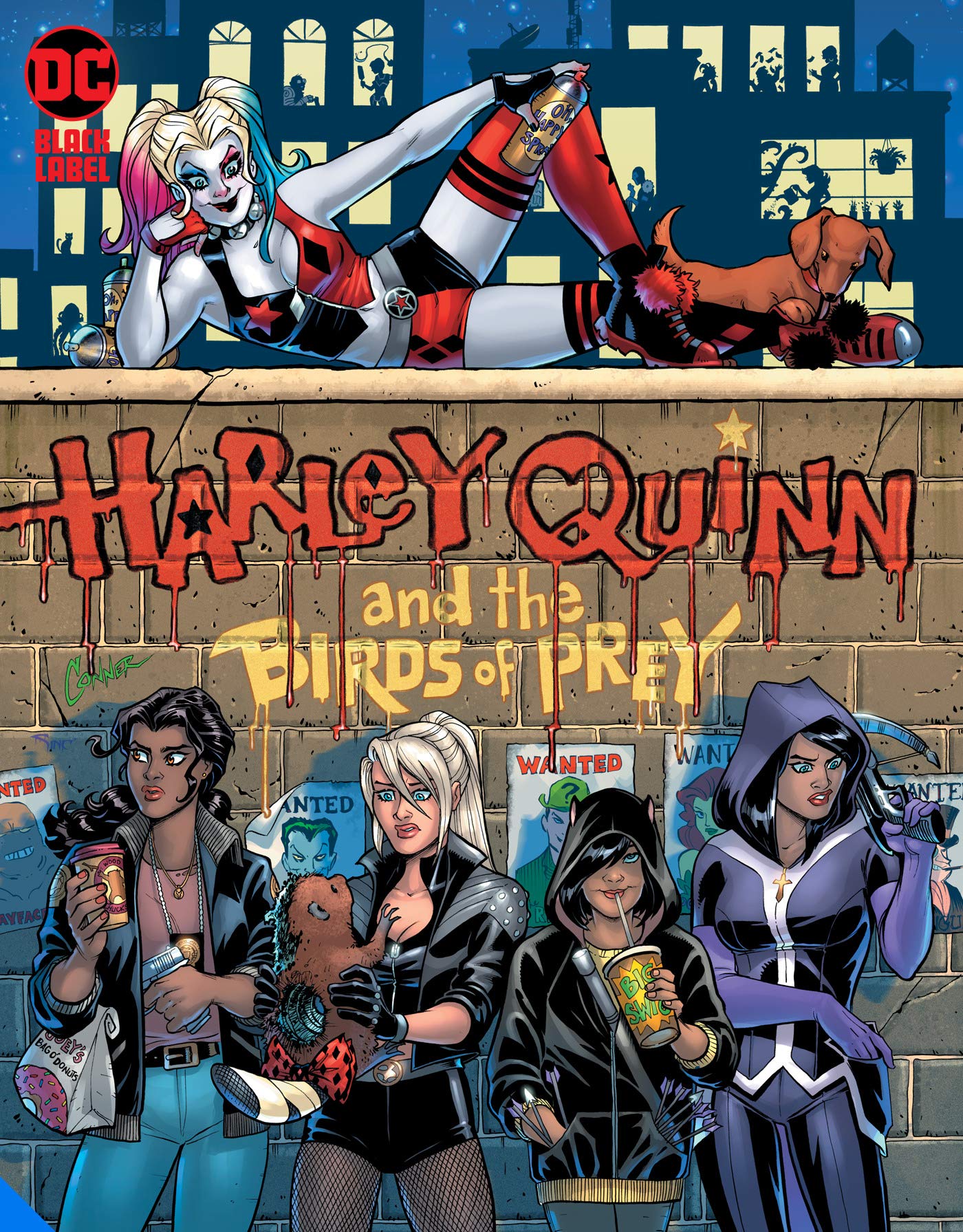
Nrama: This book feels more unrestrained, more madcap. Are there any restrictions that came with that? What kind of challenges came with going this Black Label direction?
Palmiotti: We don't have nudity, but we do tease. We push the boundaries but we don't do full-on nudity.
Conner: It wasn't for lack of trying!
Palmiotti: There are a couple words we can't use, we found out.
Conner: Well, certain people can't say certain things. There's a certain iconic superhero who's not allowed to say "unicorn taint."
Palmiotti: We just got a big note that said, "Take that out!" And I'm like, "Really? We can say all this horrible stuff but not that?" I don't even know how that's offensive! Everyone knows unicorns don't have taints.
Conner: It's not a real thing.
Nrama: Last question. As we see in this Harley story and in the recent movie, Harley is really willing to love and be loved. That's kind of what kickstarts her fascination with the Joker, right? There's someone who appears to love her.
Conner: She definitely wants to be needed and loved.
Palmiotti: We watched that movie and thought one of our books came to life. The research was there, and it just... She definitely wants to be loved. She wants to do the right thing. And there's a part of her that's self-destructive. Power Girl and Ivy want to nurture her. Joker sees her and says, "I want to take advantage of this."


